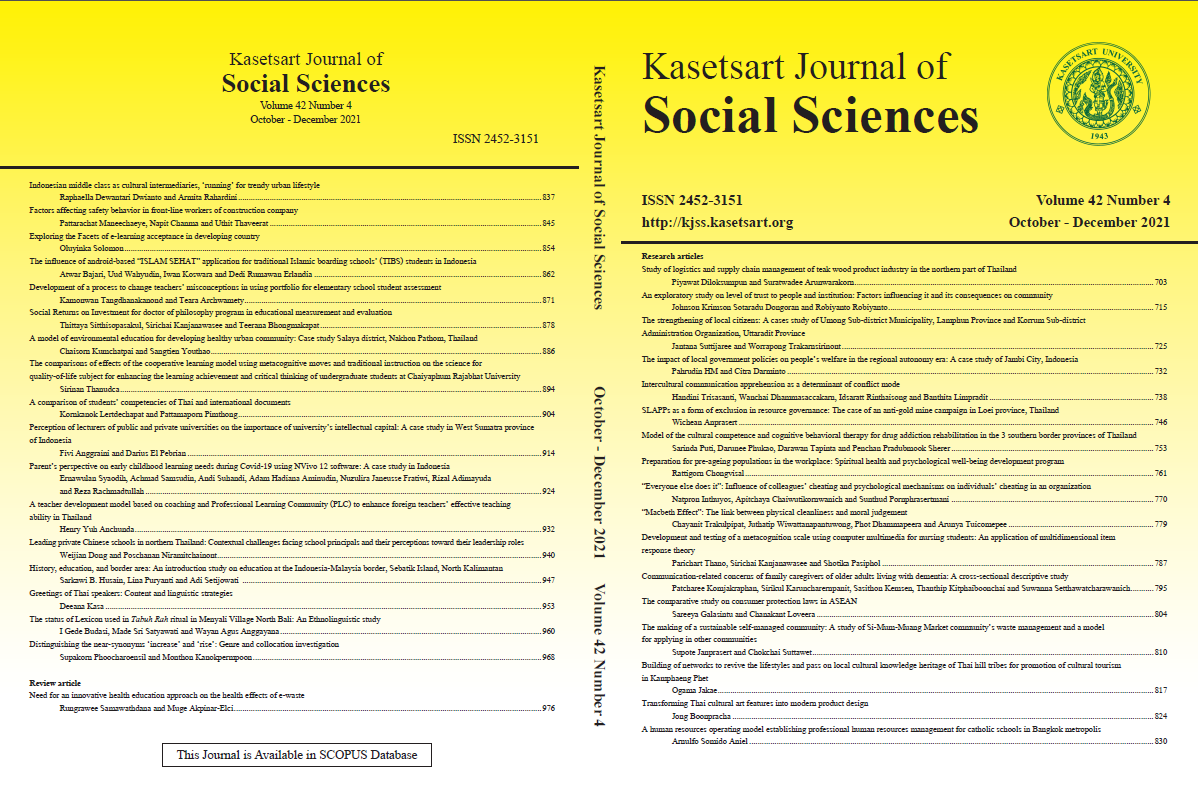A comparison of students’ competencies of Thai and international documents
Keywords:
comparative study, competency, competency-based curriculum, transversal competenciesAbstract
International policy documents address competencies as required tools in education to promote students’ well-being. In the beginning phase of curriculum development in Thailand, The Office of the Education Council (2019) launched research for implementing competency-based curriculum. To compare three frameworks, this documentary research analyzed the differences and similarities between the core competencies in Thai document and the two above-mentioned international documents. The number of consistent competencies in the Thai document compared to the documents by the United Nations Educational, Scientific and Cultural Organization (UNESCO) and the Organization for Economic Co-operation and Development (OECD) were counted and then transformed into percentages for comparison. The findings showed that the proposed Thai competencies were more consistent with the OECD’s framework (56.25%) than UNESCO’s framework. The most consistent competencies between the Thai document and the other two frameworks were life skills and personal growth and collaboration, teamwork, and leadership (16.67%). In terms of differences, the Thai document integrated competencies unique to the Thai context, such as considering the sufficiency economy, efficiency economy and applying knowledge to design and create creative products through professional ethics and social responsibility. Curriculum developers and stakeholders in Thailand should consider the outstanding differences among the three frameworks in developing the curriculum for the Thai context.
Downloads
Published
How to Cite
Issue
Section
License

This work is licensed under a Creative Commons Attribution-NonCommercial-NoDerivatives 4.0 International License.
This is an open access article under the CC BY-NC-ND license http://creativecommons.org/licenses/by-nc-nd/4.0/










